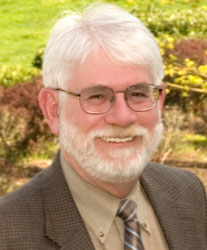You are here
Task forces, work groups abound on education funding and policy issues
With the Special Session on PERS over (unless there’s another one on the Columbia River Crossing), legislative attention is now turning to the one-month February Session and onto the regular Session in 2015.
First, this is not a column suggesting the Legislature is meeting too often. That argument was settled by the voters, who saw need for annual legislative meetings. But there was an outcome that may not have been fully understood by anyone – to get ready for full body meetings every year, legislators found they needed to do more in-depth advance planning. The outcome for them and really for the rest of us has been the proliferation of “work groups and task forces.”
The old expectation that policy development could occur when a citizen or interest group called a legislator with the simple statement beginning, “there ought to be a law that …” is out of date. We’re in a new policy development world of government shutdowns, Obama Care, Common Core, Smarter Balanced, activist leadership in education from a Governor/Superintendent of Public Instruction and the natural realignment to meet 40/40/20 and P-20 goals driven by an Oregon Education Investment Board. And that’s just in education and in no way inclusive of the broad issue areas under discussion.
Here’s just a partial list of the ones set up by legislators during the last Session:
- Task Force on School Funding (HB 2506) – This high level group of legislators and interested parties, including a couple of COSA members, is to “make recommendations regarding possible modifications to the funding formulas used to distribute State School Fund moneys to school districts and education service districts.” The report due date is 10/1/14.
- Regional Education Work Group (HB 3401) – The bill tells task force to “explore options for optimal regional delivery systems; and propose legislation related to the findings of the work group.” This one, being staffed by OSBA and COSA, is to report to the legislature’s education committees by 11/20/13 (that’s right, just under three weeks from now).
- The Accelerated Learning Commission (SB 222) – This commission is to examine methods for high school students to earn college credits while in high school and to align funding, assessments and procedures between high schools and post-secondary institutions. All this is in order to make post-secondary education more accessible and affordable for Oregon families and students.
That’s just three of the big ones. Others include the Task Force on State Budget Process (SB 552), Task Force on School Capital Improvement Planning (SB 540), STEM Advisory Council (HB 2636), Task Force on High School Transition Success for Students with Disabilities (HB 2743, Joint High School, Community College Advisory Committees (HB 2912 and Grant Committee for Career and Technical Education Revitalization Grant Program (HB 2913).
This list should give you a feel of the kind of issues currently percolating for future action.
And, at the same time the Legislature is working on its agenda, OASE (the state school superintendents’ association that’s part of COSA) is doing its own policy development through the Vision and Policy Committee and Funding Coalition Steering Committees as well as the list of work groups below:
- Open Enrollment/Inter-district Transfers
- Full-day Kindergarten/Early Learning
- Re-imagining Grades 11-14
- E-Learning/Technology
At this point, the Full-day Kindergarten/Early Learning Work Group is scheduled to make a preliminary presentation to the House Interim Education Committee during its meeting on Nov. 20. These work groups, made up of district superintendents around the state, as well as other administrators and interested parties, are in the process of developing information and policy recommendations for their colleagues and legislators. Outcomes from them are generally aimed at the 2015 Regular Session.
Future columns will report on activities and recommendations appearing from all of this hard work.

